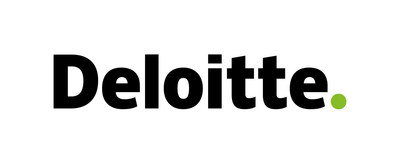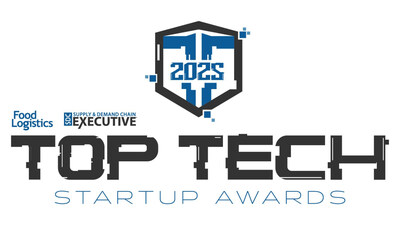AI Use Expected to Increase in Risk and Compliance Efforts, But Few Have Ethics Frameworks in Place
Press Releases
Oct 28, 2019
NEW YORK, Oct. 28, 2019 /PRNewswire/ — Nearly half (48.5%) of C-suite and other executives at organizations that use artificial intelligence (AI) expect to increase AI use for risk management and compliance efforts in the year ahead, according to a recent Deloitte poll. Yet, only 21.1% of respondents report that their organizations have an ethical framework in place for AI use within risk management and compliance programs.

“As many organizations are still learning how best to adopt and leverage AI capabilities, it’s not surprising that ethical frameworks are often missing from the ‘trustworthy AI’ equation,” said Irfan Saif, Deloitte Risk & Financial Advisory principal and Deloitte AI leader, Deloitte & Touche LLP. “To better scale AI governance over time and to better reduce algorithm bias, leading organizations are approaching AI ethics proactively by embedding ethical frameworks into all AI efforts as a matter of practice.”
While AI ethics frameworks for risk management and compliance may be few, there is a silver lining: companies are more likely than not to involve top leaders in developing ethical AI practices. More than half of respondents (53.5%) indicated that AI ethics responsibilities are established including the C-suite. Just one-fifth (19%) indicate the C-suite in their organizations have no AI ethics responsibilities.
Maureen Mohlenkamp, a Deloitte Risk & Financial Advisory principal specializing in ethics and compliance services, Deloitte & Touche LLP, added, “C-suite and board executives need to ask questions early and often about ethical use of technology and data—inclusive of and beyond AI—to mitigate unintended and unethical consequences. As data and technology uses evolve, tying efforts directly to organizational mission statements and corporate conduct policies can help organizations ensure that future advancements start with a strong ethical foundation. Further, a board-level data committee should be established to discuss enterprise-wide AI use, monitoring and modeling with appropriate C-suite leaders.”
Questions leaders can ask about ethical use of technology and data across the enterprise include:
- Did we set the right tone at the top for our organization on AI ethics? Corporate boards and C-suites set the tone for any ethics or compliance program, inclusive of AI ethics programs. Data officers, CIOs and CISOs along with legal, ethics or compliance officers can determine governance specific to AI, as well as to the processes and controls needed for work executed by machines versus humans.
- What organizational standards have we developed for ethical use of AI? Guiding, monitoring and assessing if technology and data are used ethically by the organization, its employees, vendors and customers can be executed technically, organizationally or both. For example, a technical framework could be embedded within the design of an AI solution to prevent certain actions from being completed. Or, data scientists and other data professionals could develop an AI “code of conduct” and set-up channels through which to escalate issues. Organizational standards for AI ethics should consider the growth of AI and the role of the machine, as the workforce of the future is not just human beings.
- Did we conduct an AI ethics gap analysis? “AI ethics is as much about understanding the risks as it is about establishing a process for avoiding them. Review existing organizational policies, procedures and standards to address existing gaps, then expand existing policies or build new ones accordingly,” said Mohlenkamp.
- Do we have a plan in place to educate our workforce on AI? “For many organizations, a steep AI learning curve awaits. Traditional business professionals will need to learn how to team with data scientists and technologists to achieve strategic goals and to explain the changes in the environment. And those developing algorithms and managing data will need to be specially trained to identify and mitigate bias within AI applications. An educated and tech savvy workforce is better positioned to ethically embrace the opportunities that AI use creates,” said Saif.
- Did we alert product teams on what to look for in monitoring AI solutions for ethical compliance? Saif concluded, “One way to do this would be to embed into IT architecture design—similar to the Privacy by Design framework—considerations for the ethical use of data and technology. Another is to design control structures and embed them into AI-enabled solutions.”
About the online poll
More than 565 C-suite and other executives working at organizations using artificial intelligence (AI) were polled online during a Deloitte webcast, titled “AI ethics: An emerging imperative for the board and c-suite,” on Sept. 4, 2019. Answer rates differed by question.
About Deloitte
Deloitte provides industry-leading audit, consulting, tax and advisory services to many of the world’s most admired brands, including nearly 90% of the Fortune 500® and more than 5,000 private and middle market companies. Our people work across the industry sectors that drive and shape today’s marketplace — delivering measurable and lasting results that help reinforce public trust in our capital markets, inspire clients to see challenges as opportunities to transform and thrive, and help lead the way toward a stronger economy and a healthy society. Deloitte is proud to be part of the largest global professional services network serving our clients in the markets that are most important to them. Our network of member firms spans more than 150 countries and territories. Learn how Deloitte’s more than 312,000 people worldwide make an impact that matters at www.deloitte.com.
|
Contact |
||
|
Nicole Hockin |
Shelley Pfaendler |
|
|
Public Relations |
Public Relations |
|
|
Deloitte & Touche LLP |
Deloitte Services LP |
|
|
+1 303 305 3074 |
+1 212 492 4484 |
|
Deloitte refers to one or more of Deloitte Touche Tohmatsu Limited, a UK private company limited by guarantee (“DTTL”), its network of member firms, and their related entities. DTTL and each of its member firms are legally separate and independent entities. DTTL (also referred to as “Deloitte Global”) does not provide services to clients. In the United States, Deloitte refers to one or more of the US member firms of DTTL, their related entities that operate using the “Deloitte” name in the United States and their respective affiliates. Certain services may not be available to attest clients under the rules and regulations of public accounting. Please see www.deloitte.com/about to learn more about our global network of member firms.
![]() View original content to download multimedia:http://www.prnewswire.com/news-releases/ai-use-expected-to-increase-in-risk-and-compliance-efforts-but-few-have-ethics-frameworks-in-place-300945891.html
View original content to download multimedia:http://www.prnewswire.com/news-releases/ai-use-expected-to-increase-in-risk-and-compliance-efforts-but-few-have-ethics-frameworks-in-place-300945891.html
SOURCE Deloitte



